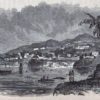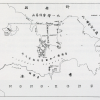Myriad Materialities is a two-day conference organised by the Colonial Ports and Global History (CPAGH) Network at TORCH, The Oxford Research Centre in the Humanities, and the Staatliche Museen zu Berlin. It will be held at the Ethnologisches Museum Berlin on 10 and 11 July 2020. This interdisciplinary conference draws attention to the materialities ‘beyond […]






